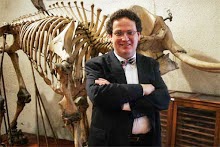Dear Caroli,
I have long struggled to comprehend why taxonomy is so misunderstood, particularly by non-taxonomic biologists. At least part of the confusion is that taxonomy is many things to many people. To a field biologist who simply wants to identify a plant or animal at a study site, the whole of his exposure to taxonomy may progress no farther than a diagnostic key and a bewildering list of synonyms. To him, synonyms are a nuisance inasmuch as he just wants to know what name to use. And once identified and known by name, he may not see further need of taxonomy. It is to this almost trivial aspect of taxonomy that things like DNA barcoding is directed. It assumes that species are just arbitrary bits of a genetic continuum carved out and named for convenience and to avoid biodiversity chaos. Were this true, DNA barcoding would be as good an option as any. Fortunately, it is not.
To the comparative biologist, taxonomy is the source of hypotheses about phylogenetic relationship and an incredibly useful vocabulary by which to indicate which monophyletic clade is being discussed. This phylogenetic systematic division of taxonomy begins to get at the depth, complexity, and intellectual richness of taxonomy.
A growing user community are the biomimicry pioneers who would use evolutionary adaptations as a source of entrepreneurship and problem-solving. To this community, taxonomy is not merely an identification and a name. The phylogenetic classification is the key to predicting where to look to find an attribute of an organism of interest. Moreover, it is in the detailed description of species --- the attention to anatomical detail --- that many of the most important adapations are to be found. This community appreciates that there is deep value in descriptions that can never be approached by molecular data alone, even if barcodes are aligned with libraries of known species (something both claimed and demonstrably violated by some of its luminaries who say that barcodes are identification and not species discovery tools at the same time that they promote them as species discovery tools). Integrity, it would seem, takes a back seat to profits.
And finally, there is the taxonomy of taxonomists. To the taxonomist his science is the ultimate expression of evolutionary biology. In the course of his revision or monograph, he combines the adventure of boots-on-the-ground exploration, the scholarship involved in studying all descriptions and type specimens since 1758, the exciting discovery associated with deep thought about and interpretation of homology, and the intellectual satisfaction of understanding the origin and entire evolutionary history of not only a monophyletic group of species but also of the transmutation of numerous suites of characters. This intellectual exercise knows none of the normal bounds of space or time, taking as a limitation only the boundaries of synapomorphy and energetic search for characters.
Those who trivialize taxonomy as an identification service have failed to grasp the significance of those identifications and names. They are reliable only because they reflect rigorous theories about characters, species, and clades and that is no trivial scientific accomplishment.
Your Apostle,
Quentin
Monday, September 5, 2011
Subscribe to:
Post Comments (Atom)











No comments:
Post a Comment